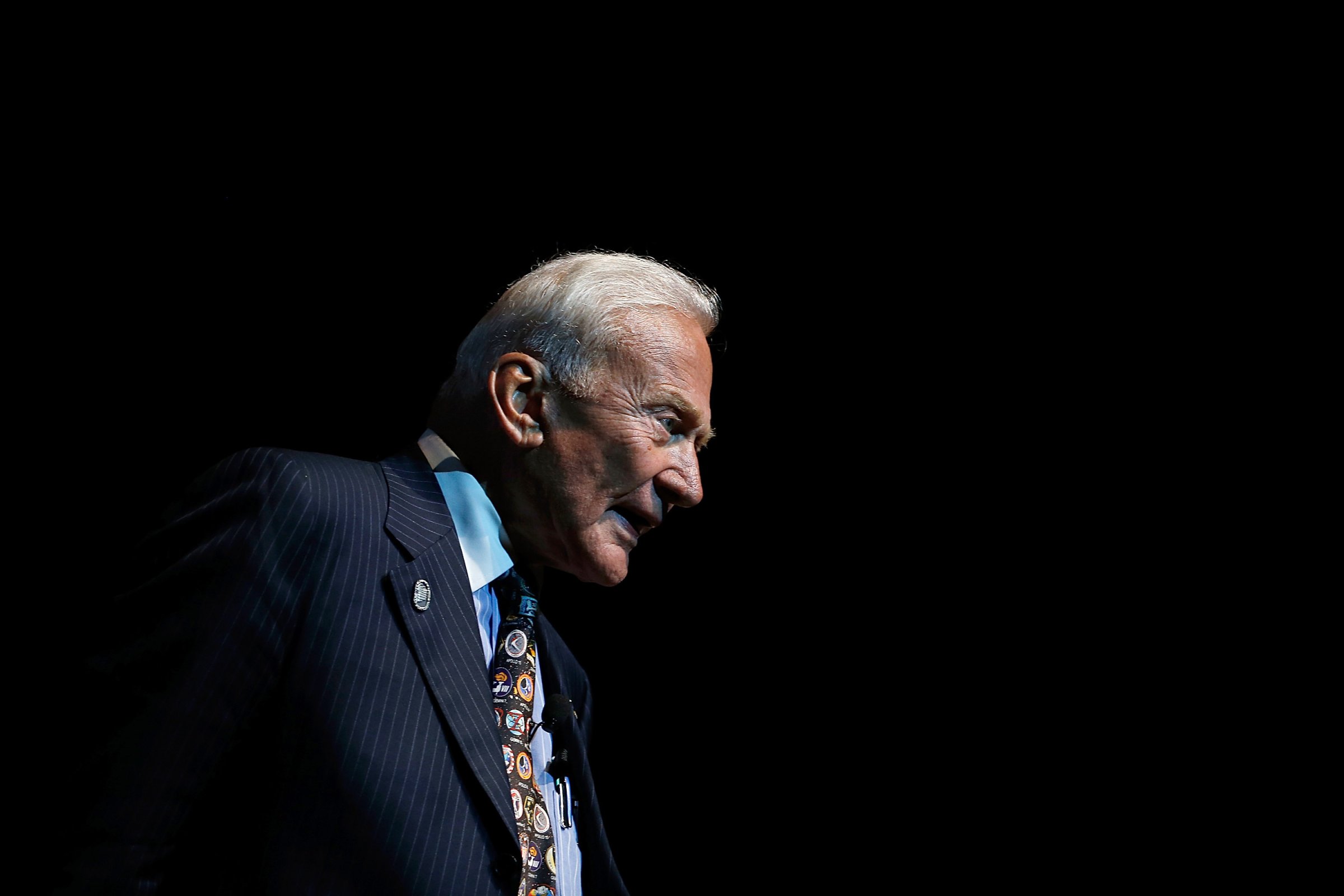
It’s hard to believe that on July 20, 2014, we’ll be celebrating the 45th anniversary of Apollo 11, man’s first landing on the moon. It’s also hard to believe that no one can really say where the U.S. manned space exploration program is heading and how we’re going to get there. People come up to me and say, “It’s too bad the space program got canceled.” This is not the case, and yet that is what most of the public thinks has happened. Yes, we hear from NASA that the destination is Mars — and yet there is no detailed plan on how to get there. No one can seem to agree on a clear path. The nation is understandably focused on many other pressing challenges at the moment. However, if we don’t make some important decisions about the future of our space program very soon, I’m afraid the program will be lost to the ages.
There are eight U.S. astronauts left out of the 12 who walked on the moon. All of us are in the eighth decade of our lives. Each of us can attest to the importance of continuing human exploration of space and the tremendous impact it has had on so many facets of our society. The technical innovations, scientific achievements, medical breakthroughs, environmental enhancements, national defense improvements and educational impacts have been immeasurable. Our nation simply cannot afford to lose a program that has contributed so much for so long. Our leaders have some important decisions to make and they need to make them now. The moon must not be the last stop in America’s quest for knowledge of other planets and of other places.
Here’s what we as a nation must decide:
It’s unlikely that the remaining Apollo astronauts, including yours truly, will be around to witness the conclusion of the next exciting chapter in our nation’s space program. However, we would like to be here when our President and Congress make these critical decisions. If our leaders make the right decisions — and they must — we’re confident the new manned space program will meet or exceed the tremendous success of the Apollo program so many years ago. But let’s make these decisions now.
Dr. Buzz Aldrin served as lunar module pilot for Apollo 11, the first manned lunar landing mission. He is the author of eight books, including his New York Times best-selling autobiography Magnificent Desolation. His newest book, Mission to Mars: My Vision for Space Exploration, was published in 2013. As one of the leading space exploration advocates, Buzz continues to chart a course for future space travel.
More Must-Reads From TIME
- The 100 Most Influential People of 2024
- The Revolution of Yulia Navalnaya
- 6 Compliments That Land Every Time
- What's the Deal With the Bitcoin Halving?
- If You're Dating Right Now , You're Brave: Column
- The AI That Could Heal a Divided Internet
- Fallout Is a Brilliant Model for the Future of Video Game Adaptations
- Want Weekly Recs on What to Watch, Read, and More? Sign Up for Worth Your Time
Contact us at letters@time.com